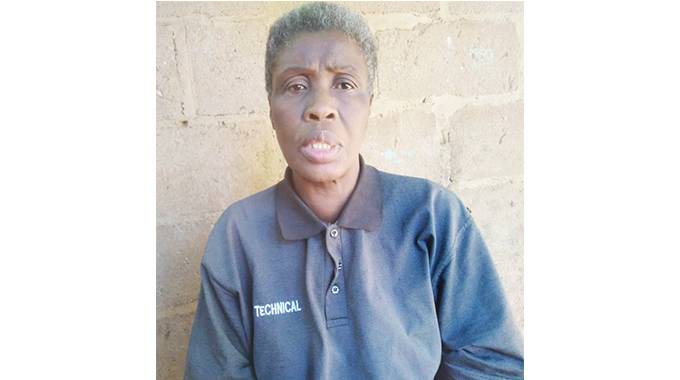Victoria Falls taxi drivers hard-hit by Covid-19

Leonard Ncube, Victoria Falls Reporter
THE past four months have been distressing for ordinary Zimbabweans, with those in the informal sector devastated by loss of business and livelihoods.
Since the detection of the first confirmed case of Covid-19 in the country which subsequently led to a national lockdown on March 30, scores of employees in a cross section of the country’s economy have lost jobs with many not sure of what the future holds for them.
In the tourism sector, industry players have said about 90 percent of employees have been rendered jobless.
In Victoria Falls, the tourism sector accounted for more than 80 percent of the workforce and more than three-quarters of these have all lost their jobs because of the pandemic.
This is because of the demise of the industry where hotels, tour operators and restaurants closed shop because of lack of business owing to global travel restrictions.
Victoria Falls’ economy is largely hinged on tourism, hence lack of tourists means no life in the country’s tourism capital.
Tourism has a long value chain, with numerous sectors, on a good day, benefiting from each and every tourist that visits the town.
A tourist’s complete itinerary starts with the client reaching out to an agent for a quotation and booking to a hotel, lodge, restaurant, activity or flight. Once bookings are made, the tourist flies in and is welcomed by an agent who then hands him or her to a taxi driver or hotel.
The value chain continues at the front office desk where check-in is done before handing over to restaurant staff who include a chef and waiter/waitress.
A tour guide takes over to lead the client on a tour of various activities and services of a taxi driver become essential.
Tourists sometimes want to sample the nightlife in the resort town or enjoy traditional foods at The Boma Dinner and Drum Show, classic meals at Lookout Café or Three Monkeys, or even visit other nightspots for beer and braai with locals.
The client also takes a tour of the town’s informal markets to buy curios and other kinds of artefacts as well as African attire from various informal trading markets around town.
All these different sectors involved in the value chain are literally dead yet at every stage, there is a family or community that directly benefits from those employed in the value chain.
All these services were charged in United States dollars, which made Victoria Falls a unique town, different from other urban areas in the country where citizens and even foreign clients would pay in local currency at affordable rates.
The hardest hit of them all are taxi drivers.
There are no kombis in Victoria Falls and six-seater Toyota Gaia, Wish and Honda Fit vehicles are used for public transport while Toyota Noahs operate on the highway to Hwange and rural areas, where they would charge exorbitantly in United States dollars.
On a good day, a taxi driver who mainly transports tourists would make between US$30 and US$100 per day while those operating as public commuters would make between US$15 and $50 per day.
It would seem taxi operators and their drivers have gone from “hero to zero” as they have gone from a life of receiving United States dollars on a daily basis to sitting at home 24/7.
Before the Covid-19 pandemic hit, one would envy taxi drivers and curio vendors’ lifestyles as they would freely spend the United States dollars knowing the next foreign tourist was on their way.
Given a scenario where one would be made to observe lifestyles between a taxi driver, civil servant and any other worker outside the tourism industry, one would be forgiven to think that the taxi driver is the one in the formal sector while others were vendors judging by the spending patterns.
However, like fate would have it, taxi drivers are faced with hard time as the majority of them are now struggling to make ends meet.
While other sectors of the economy are finding ways of withstanding challenges brought about by the Covid-19 pandemic, taxi operators in Victoria Falls are counting their losses as they have been totally thrown out of business with no clients to transport.
The national lockdown restrictions banned public transport countrywide, with only Zupco buses allowed to provide intra-city services.
Victoria Falls taxi operators’ hope lie on the reopening of the tourism sector, which might not be soon due to the new wave of local Covid-19 cases.
Some taxi drivers have relocated to rural areas while others are seen during the day begging shoppers at supermarkets to hire them. Some have even desperately reduced fares to US$1 per trip.
Others have resorted to removing registration plates and covering the taxi logos on their cars as a disguise to throw off law enforcement agents as private vehicles are the only ones allowed to move around.
However, competition remains stiff as Zupco buses charge RTGS$8 per trip.
Operators who spoke to the Chronicle said the lockdown had left them with no means of survival.
Even the recent partial reopening of the tourism industry has not been of any help as there are still no tourists coming to the town.
A female taxi driver, Ms Polina Mlalazi (56), probably the only female driving a taxi in the resort town, said she had known no other job since 2000.
She said she had only done two trips since March when the lockdown started.

Mrs Polina Mlalazi
“There’s no business at all. I only had two trips since the lockdown was introduced and the only prayer we can make is for restrictions to be relaxed so that borders and airports open. Life is not easy at all. Imagine making between US$40 and US$50 or even US$80 on a good day and falling back to zero. My situation is probably better because I’m the owner of the taxi unlike those who were employed and earning on commission. I’m now relying on my children but that’s not easy,” said Ms Mlalazi.
Mr Obert Marowa, who operates at Town Centre taxi rank appealed for relaxation of lockdown restrictions for metered taxis.
“Our situation is dire because we relied on tourism. There’s no business at all and this was worsened by banning of vehicles with red plates. We parked our vehicles but because we’re breadwinners who need money for rentals and food, we have to come up with other means because our families are starving.
“We wish Government could differentiate us metered taxi operators from public transporters who carry full loads because we’re hired and carry one or two passengers at any given time hence it’s easy to observe social distancing,” said Mr Marowa.
He said before the lockdown, he could make an average of US$30 per day or more.
“Some are now using private cars so that they can at least get something for the family. Some had contracts to carry hotel or restaurant workers in the morning and at night and would bill them at the end of the month, all this is gone,” added Mr Marowa.
Some taxi drivers doubled as street agents and would earn 10 percent commission from hotels and tour operators for referring clients to them.
A majority of operators are reportedly failing to renew vehicle licences, certificate of fitness, route authority, road transporters’ operating licence and ordinary licence fees because of lack of business.
A taxi operator who preferred anonymity said: “Drivers are the worst affected because all the income they used to get is gone.”
Victoria Falls Combined Taxis Association chairman Mr Oliver Mwembe said they hoped for the reopening of tourism so they go back into business.
“Most of our members have relocated to rural areas while those that have remained in town have resorted to selling vegetables to get money because the taxi business is dead. Our members are appealing to authorities to allow them to resume operations and at least give guidelines on how to conduct business. We hope that once international flights resume, we’ll bounce back to business,” he said. -@ncubeleon









Comments